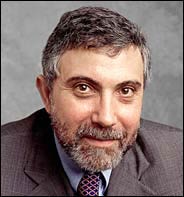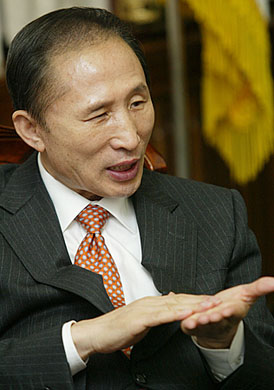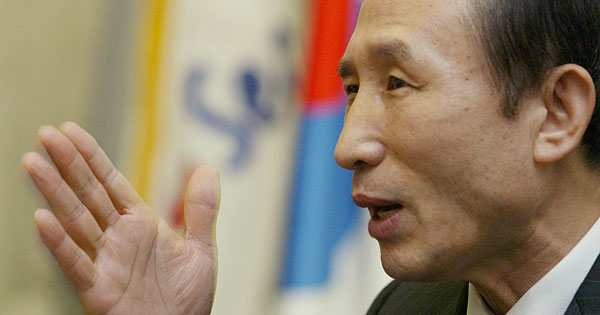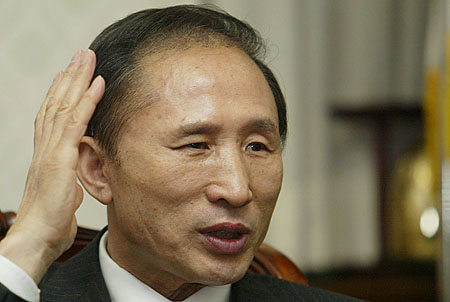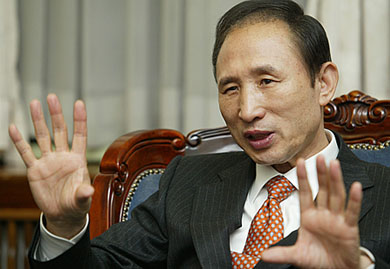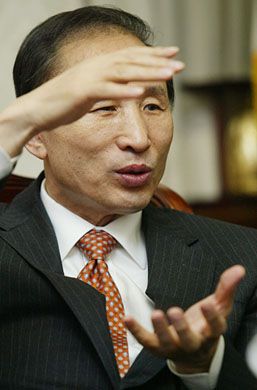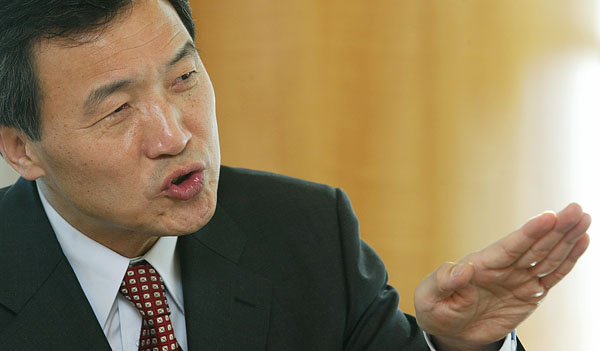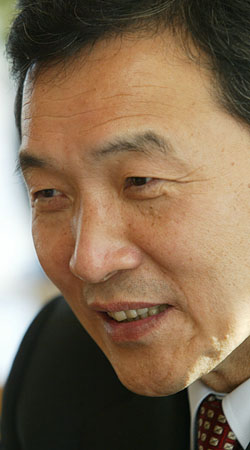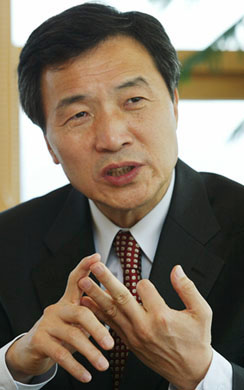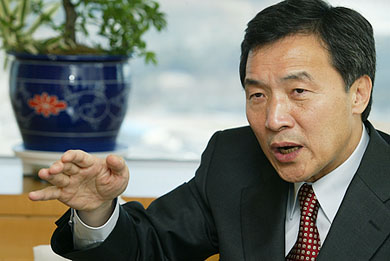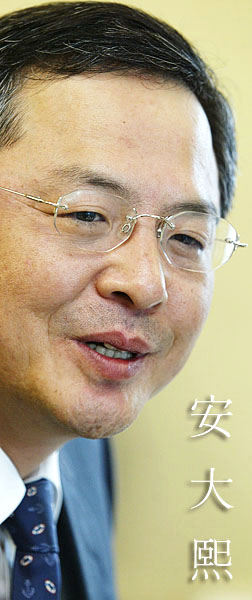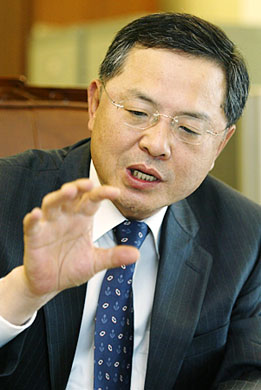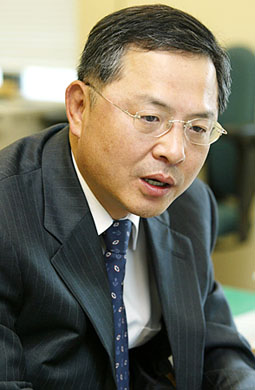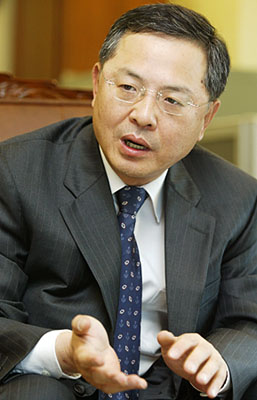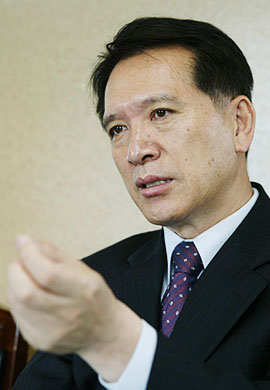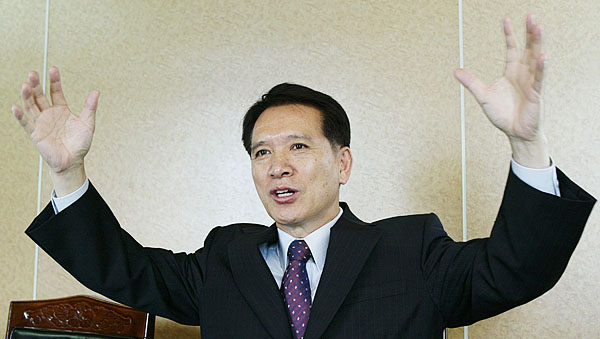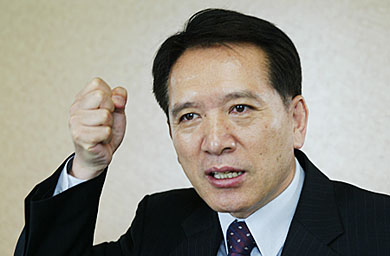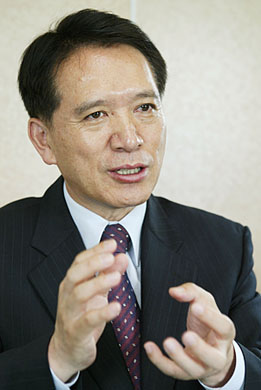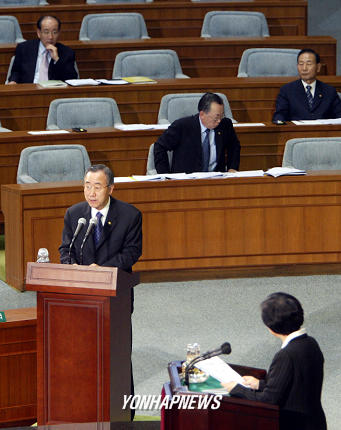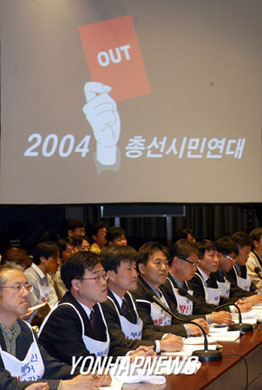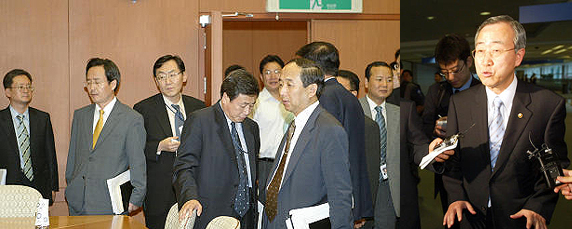"부시는 흰 것을 검다 하고 실패를 성공이라고 한다."
미국의 유력
일간지 뉴욕타임스의 명 칼럼니스트 폴 크루거먼(프린스턴대 경제학) 교수가
조지 부시 대통령 후보가 미국 국민들에게 거짓말을 하고 있다며 이처럼 비판했다.
그는 12일 '사전에 사실을 점검한다'는 제목의 칼럼을 통해 일자리, 실업률, 재정적자, 감세정책 등 8가지 주제에 대한 부시 대통령의 주장이 거짓이나 사실왜곡이라며 조목조목 비판했다. 크루거먼 교수는 그동안 부시 행정부에 대한 비판적 목소리를 높여왔으나 이처럼 강한 톤으로 부시 대통령을 공격한 것은 이례적이어서 막바지 대선국면에서 상당한 논란을 부를 것으로 보인다.그는 13일 열리는 경제를 주제로 한 3차 TV토론을 하루 앞두고 쓴 이 칼럼에서 부시 대통령이 일자리 창출과 관련한 주장에 대해 "중간시험에서 F를 맞은 뒤 그 과목을 통과하는데 최소한 C가 필요한 데도 D를 맞고서 우쭐대는 격"이라고 꼬집었다.그는 또 부시 대통령이 국방 이외 분야의 재량지출을 매년 1%밖에 늘리지 않았다고 주장한 데 대해 "실제 증가율은 물가상승분을 제외해도 8%"라며 "부시 대통령은 예산 문제와 관련해 자신이 계속 어겨온 약속과 실제를 혼동하는 모양"이라고 비꼬았다.크루거먼 교수는 두 대선 후보를 비교하면서 "케리는 부정확한 표현을 쓴다고 비판받을 수는 있지만 그의 주장의 핵심은 정확하다"며 "반면 부시의 주장은 근본적으로 부정직하다. 그는 검은 것을 희다고 하고 실패를 성공이라고 강변하고 있다"고 있다고 비판했다.그는 또 두 후보의 주장에 대해 비슷한 분량의 지면을 할애하는 언론의 행태에 대해서도 "부시 대통령의 거짓말을 폭로하고
케리 후보의 어휘 선택을 해부하는데 똑같은 시간을 쓰며 안주하는 기자들은 그들의 독자들을 현혹하는 것"이라고 주장했다. 다음은 그의 칼럼 번역과 원문.
사전에 사실을 점검한다 갈수록 절망적으로 보이는 부시 대통령이 내일 (3차 TV토론에서) 무슨 말을 할 지 예측하는 것은 어렵지 않다. 당신이 듣게 될 8개의 거짓말이나 사실왜곡과 그 각각에 대한 진실을 따져보자.
일자리=부시 대통령은 2003년 여름부터 창출된 170만개의 일자리를 거론하며 지금 경제가 튼튼하며 더 튼튼해질 것이라고 말할 것이다. 그것은 마치 당신이 어떤 과목의 중간시험에서 F를 맞은 뒤 그 과목을 통과하는데 최소한 C가 필요한 데도 D를 맞고서 우쭐대는 격이다.
부시 대통령은 허버트 후버 대통령(1929~1933년 재직한 미국 제 31대 대통령) 이래 재임기간 중 정규직 일자리가 감소한 첫 번째 대통령이다. 미국 경제가 단지
인구 성장에 발 맞추기 위해서만 매년 약 160만개의 일자리가 추가로 필요하기 때문에 실제로는 더 나쁜 상황이다. 지난 해의 일자리 증가는 일자리가 감소한 것보다는 더 좋은 소식이긴 하지만 이 같은 필요기준을 맞추지 못한다. 더구나 필요한 일자리 수와 실제 가용할 수 있는 일자리 수 사이의 엄청난 간극을 좁히는 데도 거의 기여하지 못한다.
실업=부시 대통령은 지난 해 6월부터 실업률이 감소한 것을 자랑스러워한다. 하지만 취업자 비율은 전혀 증가 하지 않았다. 실업률이 감소한 것은 단지 일자리가 없는 사람들 중 일부가 구직을 포기해 실업 통계에 잡히지 않았기 때문일 뿐이다. 일하고 있거나 적극적으로 구직하고 있는 인구를 나타내는 노동 참가율이 부시 행정부 들어 급감했기 때문이다. 만약 노동참가율이 (부시 대통령이 집권하기 전인) 2001년 1월 수준을 유지했다면 공식 실업율은 7.4%가 됐을 것이다.
재정적자=부시 대통령은 경기 후퇴와 9.11테러가 기록적인 재정 적자를 초래했다고 주장할 것이다. 하지만 의회예산처(CBO) 추정에 따르면 부시 대통령의 감세조치 때문에 2004년 재정적자의 3분의 2가량이 발생했다.
감세=부시 대통령은 (민주당 대통령 후보인)존
케리 상원 의원이 '중산층을 위한' 감세조치에 반대했다고 주장할 것이다. 하지만 CBO의 수치는 부시 대통령이 실시한 감세 혜택의 대부분이 상위 10%에, 3분의 1 이상이 평균 수입이 100만달러 이상인 상위 1%에 돌아갔다는 점을 보여준다.
케리의 세금정책=부시 대통령은 또 케리 후보가 많은 중소기업들에 대한 세금을 올리려 한다고 주장할 것이다. 사실은 매우 미미한 수의 중소기업들이 영향을 받게 된다. 게다가 케리 후보가 지난 주 적절히 지적했듯이 부시 행정부의 중소기업 사주에 대한 정의는 매우 넓어서 목재 회사에 지분을 갖고 있는 부시 대통령까지 포함한다.
재정 책임=부시 대통령은 케리 후보가 2조달러의 새로운 정부 지출을 제안하고 있다고 주장할 것이다. 그것은 당파적 시각으로 본 수자로 중립적 추정치보다는 훨씬 높다. 반면 워싱턴포스트지가 공화당 전당대회 후 지적했듯이 부시행정부가 제시한 수치를 보면 부시 대통령의 정책과제들을 실행하는 데 드는 비용은 케리 후보측 안을 훨씬 능가하는 3조달러 이상이 들 것이다.
부시 대통령은 지난 금요일 국방 이외 분야의 재량지출을 매년 1%밖에 늘리지 않았다고 주장했다. 실제 증가율은 물가상승분을 제외해도 8%에 이른다. 부시 대통령은 예산 문제와 관련해 계속 어겨온 약속과 실제를 혼동하는 모양이다.
건강보험=부시 대통령은 케리 후보가 각 개인들의 의료 결정권을 빼앗고 싶어 한다고 주장할 것이다. 하지만 케리의 안은 메디케이드(메디케어와 함께 미국의 양대 건강관련 보험제도)를 확대해 어린이들이 건강보험 혜택을 누리게 하는 것이다. 케리의 안은 모든 이들이 재앙과도 같은 의료 비용부담을 지지 않도록 하는 것이며 만성 질환자에게는 특별한 도움이 될 것이다. 따라서 케리의 안은 환자의 결정권을 제한하는 것과는 무관하다.
부시 대통령의 거짓말과 왜곡만을 부각함으로써 케리 후보는 같은 잘못을 저지르지 않고 있다고 말하는 거냐고? 그렇다.
케리후보는 때때로 트집쟁이들이 불평할 만한 꺼리들을 제공하는 단축 어법을 사용한다. 그는 160만이 실직했다고 말한다. 하지만 그 수치는 민간부문의 실직자 수로 정부부문의 고용 증가로 부분적으로 상쇄된다. 하지만 고용 상황이 끔찍한 건 사실이다. 그는 또
이라크 전쟁 비용을 2000억달러로 언급한다. 실제 지출은 지금까지 1200억달러다. 하지만 전쟁 비용으로 최소 800억달러가 더 들어갈 거라는 걸 의심하는 이는 아무도 없다. 중요한 점은 케리는 기껏해야 부정확한 표현을 쓴다고 비판받을 수 있지만 그의 주장의 핵심은 정확하다.
반면 부시의 주장은 근본적으로 부정직하다. 그는 검은 것을 희다고 하고 실패를 성공이라고 강변하고 있다. 부시 대통령의 거짓말을 폭로하고 케리 후보의 어휘 선택을 해부하는데 똑같은 시간을 쓰며 안주하는 기자들은 그들의 독자들을 현혹하는 것이다.
Checking the Facts, in Advance t's not hard to predict what President Bush, who sounds increasingly desperate, will say tomorrow. Here are eight lies or distortions you'll hear, and the truth about each:
Jobs Mr. Bush will talk about the 1.7 million jobs created since the summer of 2003, and will say that the economy is "strong and getting stronger." That's like boasting about getting a D on your final exam, when you flunked the midterm and needed at least a C to pass the course.
Mr. Bush is the first president since Herbert Hoover to preside over a decline in payroll employment. That's worse than it sounds because the economy needs around 1.6 million new jobs each year just to keep up with population growth. The past year's job gains, while better news than earlier job losses, barely met this requirement, and they did little to close the huge gap between the number of jobs the country needs and the number actually available.
Unemployment Mr. Bush will boast about the decline in the unemployment rate from its June 2003 peak. But the employed fraction of the population didn't rise at all; unemployment declined only because some of those without jobs stopped actively looking for work, and therefore dropped out of the unemployment statistics. The labor force participation rate - the fraction of the population either working or actively looking for work - has fallen sharply under Mr. Bush; if it had stayed at its January 2001 level, the official unemployment rate would be 7.4 percent.
The deficit Mr. Bush will claim that the recession and 9/11 caused record budget deficits. Congressional Budget Office estimates show that tax cuts caused about two-thirds of the 2004 deficit.
The tax cuts Mr. Bush will claim that Senator John Kerry opposed "middle class" tax cuts. But budget office numbers show that most of Mr. Bush's tax cuts went to the best-off 10 percent of families, and more than a third went to the top 1 percent, whose average income is more than $1 million.
The Kerry tax plan Mr. Bush will claim, once again, that Mr. Kerry plans to raise taxes on many small businesses. In fact, only a tiny percentage would be affected. Moreover, as Mr. Kerry correctly pointed out last week, the administration's definition of a small-business owner is so broad that in 2001 it included Mr. Bush, who does indeed have a stake in a timber company - a business he's so little involved with that he apparently forgot about it.
Fiscal responsibility Mr. Bush will claim that Mr. Kerry proposes $2 trillion in new spending. That's a partisan number and is much higher than independent estimates. Meanwhile, as The Washington Post pointed out after the Republican convention, the administration's own numbers show that the cost of the agenda Mr. Bush laid out "is likely to be well in excess of $3 trillion" and "far eclipses that of the Kerry plan."
Spending On Friday, Mr. Bush claimed that he had increased nondefense discretionary spending by only 1 percent per year. The actual number is 8 percent, even after adjusting for inflation. Mr. Bush seems to have confused his budget promises - which he keeps on breaking - with reality.
Health care Mr. Bush will claim that Mr. Kerry wants to take medical decisions away from individuals. The Kerry plan would expand Medicaid (which works like Medicare), ensuring that children, in particular, have health insurance. It would protect everyone against catastrophic medical expenses, a particular help to the chronically ill. It would do nothing to restrict patients' choices.
By singling out Mr. Bush's lies and misrepresentations, am I saying that Mr. Kerry isn't equally at fault? Yes.
Mr. Kerry sometimes uses verbal shorthand that offers nitpickers things to complain about. He talks of 1.6 million lost jobs; that's the private-sector loss, partly offset by increased government employment. But the job record is indeed awful. He talks of the $200 billion cost of the Iraq war; actual spending is only $120 billion so far. But nobody doubts that the war will cost at least another $80 billion. The point is that Mr. Kerry can, at most, be accused of using loose language; the thrust of his statements is correct.
Mr. Bush's statements, on the other hand, are fundamentally dishonest. He is insisting that black is white, and that failure is success. Journalists who play it safe by spending equal time exposing his lies and parsing Mr. Kerry's choice of words are betraying their readers.
미디어다음 / 선대인기자
